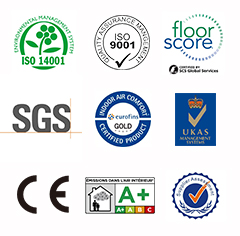Water Resistant vs Waterproof Flooring
Water Resistant vs Waterproof Flooring

Most individuals mistake water resistant and waterproof as the same things. In truth, while they do sound similar and people often use them interchangeably, these two terms have entirely different meanings. Understanding whether a material is waterproof or water-resistant is incredibly helpful when you have a floor remodeling project because you might spend too much money buying the wrong products or you might end up with an expensive floor replacement in just a few years.
How are the two different?
The difference between the two is how long it takes water to penetrate the surface of the material. If you spill water on the surface of both a waterproof and a water-resistant floor, you will notice how both types of flooring can repel water molecules. However, after some time, the water-resistant floor gets soaked, unlike the waterproof one which doesn’t get wet at all.
What types of materials are waterproof and water-resistant?
There are several types of flooring materials sold on the market today. Most of the time, flooring companies refer to waterproof and water-resistant flooring as the same thing. As such, it pays to ask before you finally buy the materials for your project. In general, vinyl flooring and tiles are waterproof. Vinyl is made from plastic, while tiles are typically stone, porcelain and other types of impermeable materials. Laminate, on the one hand, is only water resistant because it consists of wood fibres and a thin sheet of protective layer carefully pressed together.
Water resistant flooring is a beautiful and affordable flooring material. However, you may need to replace it after a few years because it can get damaged or stained easily. Use waterproof adhesives or sealants on top of your water-resistant floor so that it can last longer. Make sure you consult with your trusted tradesman to help you apply the solution on the flooring.
If you need to replace your kitchen flooring, you should use stain-resistant flooring materials such as vinyl or luxury vinyl. You can also use a textured type of tile because they are very easy to maintain and clean. If you need a flooring replacement for your bathroom, use materials that are not water absorbent. Some of the best options include stone tiles, vinyl flooring and high-quality laminate.
Now that you learned the difference between waterproof and water-resistant, we do hope you know which type of materials you should use for your upcoming projects.






